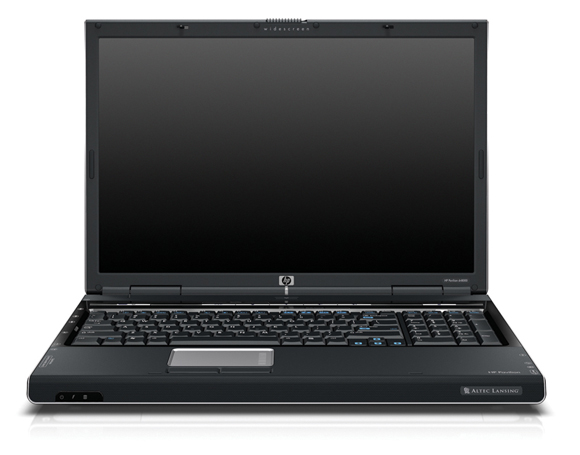When the magic works, it’s wonderful. And when it doesn’t …
Jim Aikin, whose writing you know from Electronic Musician, Keyboard, his books, and many other places he pops up, has been having a pretty bad time with a brand new HP laptop and his shared his misery on the forums. The computer in question is a Hewlett Packrat Pavilion dv8000 dual-core machine. (Here’s confusing model numbering for you: the dv8000 series includes both Intel Core Duo and AMD Turion models; Jim has the Intel version.) It’s the latest-and-greatest on the inside, but it sounds as though Jim either got a lemon, or there are problems with the way HP configured this machine, bad luck, or a combination of the three. I think there’s some sort of FireWire issue going on from the symptoms Jim is describing. If you haven’t already read this thread, please feel free to offer a better diagnosis if you’ve got one.
Updated: Don’t you love it when companies do the right thing? Jim writes: Hooray!! HP very generously agreed to take the machine back, even though the 21-day grace period had passed.
So, hip, hip, hooray for great support from HP. Now, erm, that said, someone want to suggest a laptop from a maker other than HP that might fit Jim’s (and other’s) needs? More after the break …

This does raise a broader issue: user experience on Windows can be widely variable. Different hardware vendors choose different components, drivers, BIOS, and other setup options that can have a big impact on your experience. It’s tough to go back to a “clean” Windows install, too, because Windows XP out of the box supports only some of your hardware; things like chipset drivers mean you’re reliant on your product vendor. And, yes, this is generally not the problem you have with Apple since they build the “whole widget.” (Or Linux, since most driver support is community-based and open source, though that generates some other problems.) It’s part of the reason I decided to build my new PC, for a level of control you don’t get from PC vendors — or Apple.
Of course, there’s another possibility, which is that the laptop itself is fine and either a component is working incorrectly or an installation got botched. For what it’s worth, the dv8000 has gotten pretty good reviews from Laptop Magazine and PC Magazine. (Though, interestingly, those reviews both cover the AMD models, not the Intel Core Duo, meaning they may have zero bearing at all on Jim’s machine since it has a different motherboard.) Unfortunately, the symptoms don’t narrow down the potential source of the problem.
But here’s another question for you: is there a PC laptop maker with whom you’ve had great experience? I notice today on Engadget, Alienware has their own Core Duo-based laptops now. And there’s even the option of building your own laptop, as covered recently in Maximum PC magazine. Any success stories to go with the sob stories? (In my own experience, I’ve been disappointed with a Toshiba M35-S320 PC and pretty happy with my rock-solid, if slightly underpowered, PowerBook G4 1.5.)
I will say, laptop music making can be a fantastic experience. But, like everything else, that’s only true when the magic works.